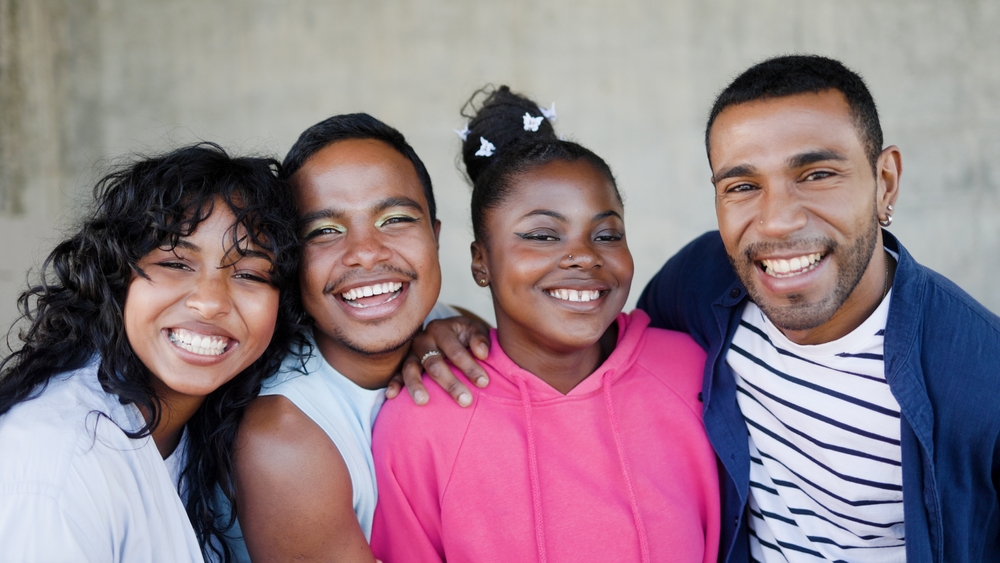Last Updated:
June 19th, 2025

For both Black men and women, UK Gov research shows how the Black community is most significantly affected by the impact of illicit drugs. The poisonous tendrils of addiction do not discriminate based on a person’s race, culture, or background, yet access to help tragically remains out of reach for many people in the Black community.
How does the spirit of Juneteenth serve as a symbolic reinforcement that supports the mental and physical health of those in the Black community?
The legacy of Juneteenth and why it matters in addiction recovery
The spirit of Juneteenth was grown on American soil but has since blossomed in many countries around the world and remains a source of celebration to this day.
Juneteenth commemorates the day when enslaved people in Galveston, Texas, finally learned they were free, two and a half years after the Emancipation Proclamation. In 1863, Abraham Lincoln, leading the nation embroiled in its third bloody year of the Civil War, declared “that all persons held as slaves, within the rebellious states, are, and henceforward shall be free.”
Celebrating Juneteenth has grown into a joyous and powerful global symbol of freedom, resilience and the ongoing struggle for racial equality.
For some people in the Black community, there are still chilling echoes that linger in extant memories. In areas like healthcare, mental health support and drug addiction recovery, trauma can still function like a spectre that hinders the progress of healing. Honouring Juneteenth can become a way to heal from historical trauma, reclaim dignity and build support systems that reflect the cultural realities people live with.
When a recovery space takes heed of Juneteenth, the grounds can be laid for recovery. Juneteenth may grant less fortunate people the strength to ask for help without shame and to find strength in a community they felt was missing.
Are there racial disparities in addiction and treatment?
Unfortunately, yes, there are unique challenges faced by Black communities in alcohol and drug addiction treatment. While substance use may not significantly differ between racial groups in the UK, outcomes and access to treatment often do. Research from Turning Point UK shows that Black individuals in the UK are less likely to receive mental health or addiction support, even when need is comparable to groups of other races.
In addition, the NHS Race and Health Observatory published research that Black people are more likely to be detained under the Mental Health Act, yet remain less likely to be offered community-based treatment or culturally sensitive care.
Meanwhile, in substance use services, referral patterns show racial biases: Black people are more often referred through the criminal justice system rather than health or social care providers. This may further fuel stigma and limit options for voluntary support, where it’s truly needed.
When recovery is boiled down to its core, it is clear to see that it should be made accessible for everyone, not just in theory, but in practice. This suggests there is still work to be done in breaking down the systemic walls that continue to hold so many people back from getting the help they need and deserve.
Some of the ways that addiction uniquely affects the Black community
Being pulled into the vicious grip of drug or alcohol addiction does not discriminate by race. Yet, Black communities can often experience added layers of hardship that shape how perspectives on substance use are formed, as well as treated. These can include:
- Generational trauma and racism: Historical trauma, including the legacy of slavery, segregation and ongoing systemic racism, leaves a deep emotional imprint. These intergenerational stressors can increase vulnerability to substance use as a coping mechanism, particularly in the absence of accessible mental health support.
- Inequality linked to substance use: Socioeconomic inequality, such as reduced access to stable housing, education, employment and healthcare, creates conditions where stress and despair can flourish. These factors are known contributors to higher rates of substance misuse and barriers to recovery.
- Cultural stigma that generates silence: In some Black communities, substance use and mental health issues may remain taboo subjects. Admitting to addiction may be seen as a moral failing rather than a medical condition, deterring a person from speaking up or seeking treatment. This silence can be isolating and dangerous.
Together, these realities create a uniquely dangerous landscape in which not all racial groups are forced to tread. The challenges faced may make it even harder to instigate the conversation in the first place.

What does healing and empowerment look like?
Healing from drug or alcohol addiction in the Black community can involve the recognition of a unique history, culture and set of challenges. Here’s how meaningful, empowering change can manifest in recovery:
In fact, leading research highlights how culturally competent treatment practices yield far greater results in client engagement, retention and treatment outcomes for substance use. This includes language and references that resonate with the client’s culture.
Having staff from more diverse backgrounds may create a more open arena for those on the cusp of opening up about their struggles. It may go a long way in breaking down long-standing scepticism and creating a space which feels truly safe, leading to a less alienating and more sensitive recovery process.
Honoring the spirit of Juneteenth in recovery
We hope we have begun to shine a light for those unaware of the symbolic significance of Juneteenth celebrations. In the context of alcohol and drug addiction recovery, we may see Juneteenth as a reminder that healing is not just personal. It often comes in collective strength and has roots in shared, lived experiences.
Addiction has the tragic capacity to drive most people into isolation. Yet recovery may enable healing through reconnecting. For some people in Black communities, that reconnection may require reclaiming cultural identity and addressing historical wounds.
Whether through culturally-led support groups, outreach initiatives, or just simply feeling seen and heard in a recovery space, we hope that the spirit of Juneteenth continues to be a beacon for recovery and liberation in its own right.
Where can I find support today?
If you or someone you care about is struggling with an alcohol or drug addiction, know that you don’t have to walk this road alone. Healing should be available to each and every person who needs it, regardless of race, background, or life experience.
At UKAT, we have already taken steps to break down barriers to care. Our addiction treatment programmes are grounded in compassion, cultural awareness and respect for every individual’s story. We pride ourselves on our ability to listen, understand and support your journey to recovery.
Addiction may feel isolating, but support is always within reach. If you’re ready to take the next step, we’re ready to walk beside you. Contact us today and find strength in a recovery journey that honours your history, your identity and your future.
(Click here to see works cited)
- “Illicit Drug Use.” GOV.UK Ethnicity Facts and Figures, NHS Digital, 23 Nov. 2021, www.ethnicity-facts-figures.service.gov.uk/health/alcohol-smoking-and-drug-use/illicit-drug-use-among-adults/latest/.
- “The Emancipation Proclamation.” National Archives and Records Administration, National Archives and Records Administration, www.archives.gov/exhibits/featured-documents/emancipation-proclamation
- Turning, www.turning-point.co.uk/news-and-insight-detail/daws-black-history-month
- “Race and Health Observatory.” NHS, nhsrho.org/what-we-do/advisory-groups/mental-health-working-group
- Robertson, Laura, and John Peter Wainwright. “Black Boys’ and Young Men’s Experiences with Criminal Justice and Desistance in England and Wales: A Literature Review.” MDPI, Multidisciplinary Digital Publishing Institute, 15 Apr. 2020, www.mdpi.com/2313-5778/4/2/50.
- Gainsbury SM. Cultural Competence in the Treatment of Addictions: Theory, Practice and Evidence. Clin Psychol Psychother. 2017 Jul;24(4):987-1001. doi: 10.1002/cpp.2062. Epub 2016 Dec 15. PMID: 27976434.


